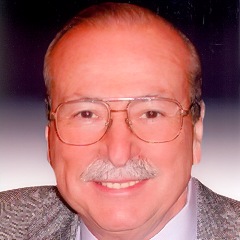
Chapter I • If I Were A Rich Man
Sweet Success • The Albert Sweet Story
Chapter I • If I Were A Rich Man
History seems to have pegged Black Tuesday as the starting point for the Great Depression. On that day, October 29, 1929, the stock market plunged nearly 23%, and within a few short years, stock prices would lose almost 90% of their value. At the same time, the unemployment rate would climb to unprecedented heights – ultimately engulfing one out of every four potential workers in the United States.
As wages and consumer buying power began to fall, industrial production plummeted, businesses collapsed, and banks closed their doors. The liberal use of credit for the purchase of homes, cars, furniture, and household appliances in the years leading up to the Depression, guaranteed that foreclosures and repossessions would become commonplace. Eventually, the decade of the 1930’s would bear witness to an economic crisis of unparalleled dimensions, spanning the entire globe.
It was under these challenging conditions that Samuel and Rose Sweet welcomed their son Albert into the world on October 29, 1931 – ironically, two years to the day following The Crash. Born within the walls of The Bronx-Lebanon Hospital, Al would spend his early years growing up in The Bronx. As the northern most of the five boroughs of New York City (the other four being Manhattan, Brooklyn, Queens, and Staten Island), The Bronx provided refuge for thousands of immigrants on the heels of World War I. It was at 1164 Vyse Avenue where Al originally lived with his parents, his mother’s father, and his older sister Helen.
My first recollections were from the time of the Depression. Most of the conversations around the home were about money, or a lack thereof. My mom was a very good seamstress. She worked all through the Depression, but she didn’t make a lot of money. My father was not skilled in any particular profession, but he sure did try. One of my earliest memories was kissing him goodbye in the morning and telling him that I hoped he would find a job that paid $40 a week. Rent was only $20 a month back then, so you were rich at $40 a week.
The fact that Al’s mother had relatively steady work throughout the Depression, while his father’s employment situation remained much more unpredictable, proved to be an ongoing source of contention around the Sweet household…
Both of Al’s parents had immigrated to the United States from different parts of Eastern Europe and had arrived at Ellis Island in New York Harbor, the gateway to the New World, within a year of each other. Following its designation as the first Federal Immigration Station by President Harrison in 1890, Ellis Island would quickly become the busiest inspection station in the United States. From 1892 to 1954, it would witness more than twelve million immigrants passing through its portals. Soon after their arrival, Rose and Sam wound up meeting each other at a gathering for people with similar backgrounds.
Al’s father originated from a Polish town near the Russian border. As a result, Samuel could speak both Russian and Polish. Al’s mother and grandfather, on the other hand, came from a small village in Western Russia due north of the Caspian Sea called Belozerka, which resembled a place right out of the pages of Fiddler on the Roof. And just as the story’s leading character, Tevye, had to contend with the anti-Jewish threats of the Russian Czar, so too did the inhabitants of the town – including Rose and her father…
This wasn’t the first time Al’s mother and grandfather had attempted to immigrate to the United States. Three years earlier, the two of them, together with Al’s grandmother, arrived in Antwerp, Belgium, the port where they were to board the ship that would eventually sail to New York. Hoping to escape the repression of the Cossacks for a new life in America, the trio’s dreams were soon dashed once the immigration processing began…
With the Russian soldiers no longer a threat, Al’s grandfather could now freely practice his Judaism at the new home in New York City that he shared with his daughter, her husband, and their two children, without any fear of government repercussions.
Early on in Act One of Fiddler on the Roof, the impoverished milkman, Tevye, struggles to pull the milk cart himself after his horse has gone lame. He turns to God and asks, “Would it really hurt anyone if I were a rich man?” So begins the play’s first big musical number. Born at a time in history when the world was knee deep in a global economic catastrophe, a young Albert Sweet most likely wondered the same thing.
Al’s mother had a brother named Ben who, like the others, had recently immigrated to America from Russia, and similarly, came with no possessions and didn’t know the language. Eventually, Ben would successfully grab hold of the American dream by working hard. He sold food from a pushcart, which eventually enabled him to purchase a number of buildings in the Flatbush area of New York.
Unbeknownst to Al at the time, his uncle Ben had been very supportive of the idea of the young man’s intention to travel across the country from New York to California…
But with that crucial trip out to California still many years away, Al would have to first experience growing up in The Bronx amidst the clashing cultures of immigrant families dealing with a Great Depression in full swing…



